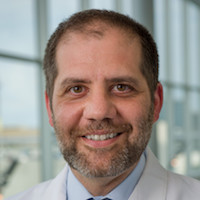New Patient Appointment or 214-645-8300

Aslan Turer, M.D. Answers Questions On: Hypertrophic Cardiomyopathy
-
What should people know about hypertrophic cardiomyopathy?
-
Hypertrophic cardiomyopathy is a genetic heart disorder that affects about one in 500 people. Patients can experience a wide range of symptoms, including shortness of breath with activity, chest pain at rest or with activity, palpitations, or irregular heartbeat.
Although many people with hypertrophic cardiomyopathy experience no symptoms, the condition puts them at greater risk for sudden cardiac death and can lead to heart failure and cardiac arrhythmias (heart-rhythm disorders), which can cause strokes.
It’s important for people diagnosed with hypertrophic cardiomyopathy to see their practitioners regularly – and equally important for family members to be screened. Unfortunately, this often falls by the wayside because people either don’t know the condition exists in their family (and that they should be screened for it) or they’re not having symptoms so they don’t think they have it.
-
How is hypertrophic cardiomyopathy treated?
-
In patients who are symptomatic, we typically start with medical therapies to reduce the heart rate and force of contraction.
If those fail, we might try catheter-based procedures such as alcohol septal ablation and septal myomectomy. These procedures markedly improve symptoms in patients with angina and symptomatic heart failure, and patients typically have very good outcomes.
-
How can people benefit from being genetically screened for and counseled about inherited cardiovascular conditions?
-
In cases where there’s clearly a familial inheritance pattern for a condition, genetic information can be very powerful.
For example, the mother of one of my patients has hypertrophic cardiomyopathy and, because she knows it can be an inherited condition, the patient has been anxious for years about developing it herself. Despite undergoing several echocardiograms that appeared normal, she was always advised to continue with regular screening.
We conducted a genetic evaluation of the patient’s mother and identified a mutation in one of her proteins that had caused her cardiomyopathy. We then knew where to focus when we screened the daughter ¬– and found no sign of the mutation.
The patient was ecstatic that we were able to say definitively that she will not develop the condition. And assuming that her children’s father doesn’t also have the same one-in-500 genetic abnormality, she no longer has to worry about her children developing it, either.
So being screened for and counseled about inherited cardiovascular conditions such as hypertrophic cardiomyopathy can have profound implications for patients and their families.